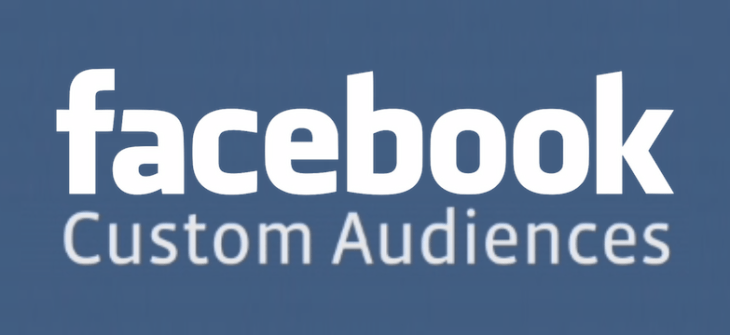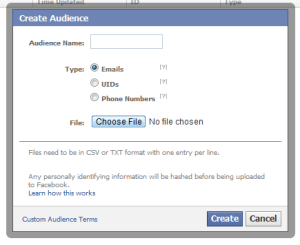No one got just how powerful it was that Facebook recently said it would allow ad targeting to lists of email addresses. Today at the Dreamforce conference it became clear, as Facebook ad chief David Fischer formally launched “Custom Audience” ads and how they tie into CRM. I’m convinced they’re going to be hugely profitable for advertisers and Facebook.
Why? A hotel company like Starwood has email addresses of its customers and could target “Come stay at the luxurious St. Regis” to high-end customers who’ve stayed there before, while targeting “Find cheap hotels nearby” to those who’ve stayed at its low-budget brands. That means more sales and more loyalty for advertisers, and more revenue for Facebook.
On August 30, Facebook told press that Custom Audiences was coming, but now it’s live with eight ads providers. Custom Audience ads let businesses submit a text or CSV file of privacy-protected hashed email addresses, phone numbers, or Facebook User IDs and have Facebook target those people with a specific ad. Businesses can also layer on additional ad targeting parameters, such as age or interests to reach a specific demographic within a customer segment.
Salesforce who brought in Fischer for its Dreamforce conference is uniquely suited to take advantage of custom audience ads because it owns both its massively popular eponymous customer relationship management system, but also a Facebook ads buying system Brighter Option that it got with its acquisition of Buddy Media this summer.
I’ve attained from Facebook a list of the seven other vendors working with custom audience ads, but none have their own CRM. They are AdParlor, Alchemy Social, GraphEffect, Kenshoo, Nanigans, Social Moov, and Optimal.
Custom audience targeted ads will be much more relevant than ads just targeted to a business fan’s or some biographical demographic. They can reach people who a business is sure purchased its products before, or that haven’t thanks to exclusionary targeting. Yes, businesses could just email these existing customers for free. However, Facebook can help them hone in on certain demographic segments of their customers by overlaying additional targeting parameters, and reach them vividly through the news feed instead of their dry inbox.
Here are a few more examples of industries that could use custom audience ads:
- A car company with email addresses of its customers could target “buy a new SUV” ads to people who bought an SUV 5+ years ago, while targeting “Find nearby charging stations” to those who recently bought an electric vehicle.
- A bank company could target different ads to customers with savings of $5,000 versus customers with $5 million.
- A Facebook game developer could plug in the user IDs of its gamers, targeting ads for its newest war-strategy games to those who played its old strategy game, while targeting ads for its latest shopping game to users who played its fashion game.
- A B2B vendor could submit a file of the phone numbers of its biggest clients and target ads for a premium service to them to increase revenue, while targeting its newest clients with ads for discounts to increase loyalty.
- Instead of targeting general ads to all its Facebook fans encouraging return visits, Amazon could advertise specific products to segments of its customers who’ve bought similar things.
Precise targeting of segments of existing customers like this could produce huge return on investment for advertisers and command high ad rates for Facebook. CRM-equipped companies might spend more when they know who they’re reaching, and that could help Facebook please Wall Street with higher revenues. In fact, it’s such a smart idea to plug CRM into ads that I bet we’ll see more advertising platforms integrate like this soon.

